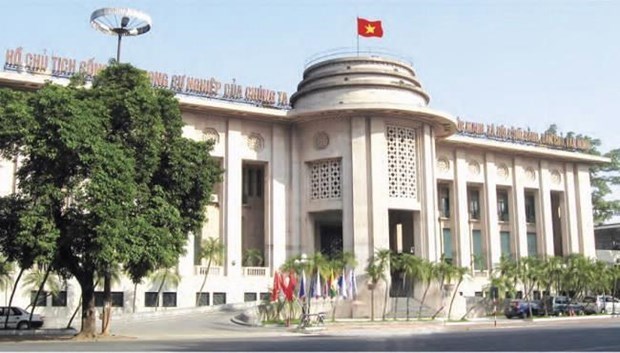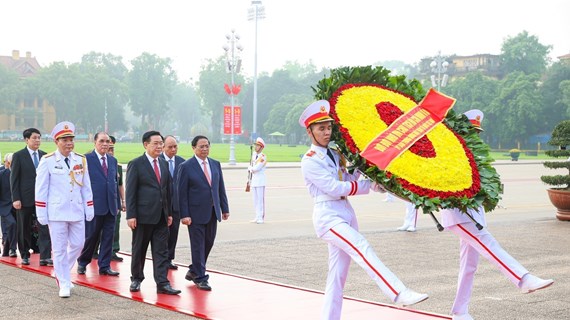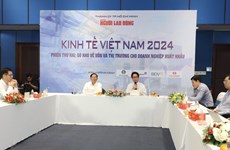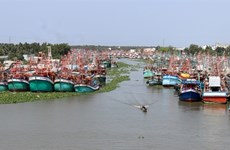Central bank responds to US labelling Vietnam as currency manipulator
 The headquarters of the State Bank of Vietnam in Hanoi (Photo: VNA)
The headquarters of the State Bank of Vietnam in Hanoi (Photo: VNA)
Hanoi (VNA) - The State Bank of
Vietnam (SBV) said on December 17 that its management of exchange rate in recent years,
within the general framework of monetary policy, aims to achieve the consistent
goal of controlling inflation and stabilising the macro-economy, not to create
unfair competitive advantages in international trade.
The central bank made the statement
in response to the US Treasury Department’s labelling Vietnam, along with
Switzerland, as currency manipulator, in accordance with the US Department of
Finance December report on the macro-economic and foreign reserve policies of
the US’s trade partners.
According to the SBV, the trade
surplus with the US and its current account
surplus are the result of a range of factors related to the specific characteristics
of the Vietnamese economy.
The SBV’s purchase
of foreign currencies aims to ensure the smooth operation of foreign currency
markets in the context of abundant supply, contributing to stabilising the macro-economy
and building up State foreign currency reserves, which remain low compared to
regional countries, so as to enhance national financial-monetary security.
Vietnam treasures
stable and sustainable economic-trade ties with the US, the SBV said, adding
that it will work with
ministries and agencies on issues of concern to the US in a cooperative and
mutually-beneficial spirit, towards achieving a harmonious and fair trade
relationship under the bilateral action plan.
At the same time,
the SBV will continue managing monetary policy in a way that will control
inflation, stabilise the macro-economy, and reasonably support economic growth.
It will manage exchange rates flexibly based on macro-economic balances, market
developments and the objectives of monetary policy, not to create any unfair gains
in international trade.
The US Treasury also put 10 countries
to a watch list of those it suspects deliberately devalue their currencies
against the dollar, which are China, Japan, the Republic of Korea, Germany,
Italy, Singapore, Malaysia, Taiwan (China), Thailand, and India.
The US uses three
criteria to determine if a country is a currency manipulator. In addition to the
current account surplus criterion, the two others are a bilateral trade surplus
with the US of at least 20 billion USD and intervention in foreign-exchange markets
that exceeds 2 percent of GDP./.












